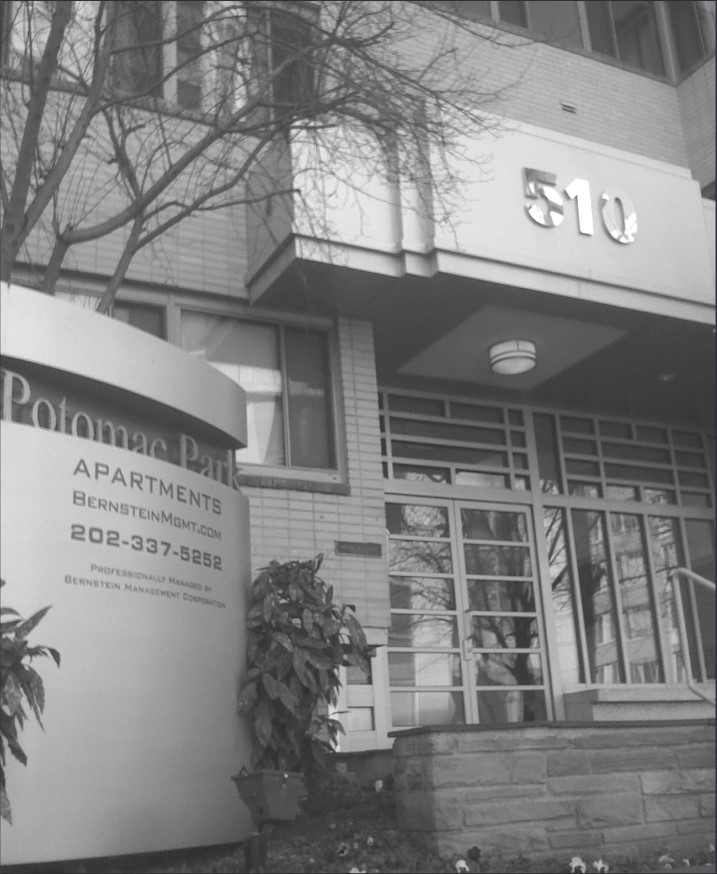Housing affordability problems due to increases in rents have been especially acute for D.C.’s lowest-income households, most of whom spend half or more of their income on housing, according to a new report by the D.C. Fiscal Policy Institute.
The report attributes the rise in rents from 2000 to 2007 to the housing market boom and the city’s new developmental projects.
One hundred thousand households paid more than 30 percent of their income for housing in 2007, surpassing the federal affordability standard, according to the r-port. Nearly 50,000 households paid half of their income for housing.
Tim Wallace, 35, resident of Potomac Park Apartments in Northwest D.C., spends half his income on rent.
Wallace has lived at the Potomac Park Apartments for five years, and says he has seen a $150 increase in his rent.
“I work two jobs,” he said. “It’s pretty tough.”
Andrew Stevenson, 27, spends approximately $1,650 a month on rent for his studio apartment at The Savoy in Northwest D.C.
Since 2003, the apartment complex has seen a $400 increase in rent, Stevenson said.
Stevenson moved in six months ago and said the apartment is old, though in good condition. “It is not unsafe, unsanitary, or infested.”
According to the report, the combination of rising home prices and the conversion of many rental units to condominiums have caused housing affordability difficulties for D.C.’s residents.
“You had a fairly steady and increasing demand for rental housing and at the same time you have a declining supply of affordable rental housing,” said Danilo Pelletiere, research director for the National Low Income Housing Coalition. “Hence, older buildings and single-family units were converted to for-sale housing.”
It’s all about affordability, said Tom Dawes, director of the affordable housing preservation for the Development Corporation of Columbia Heights. “Though there is not enough land available for affordability. It’s either high-end condominiums or its multi-family high-end rentals.”
Dawes said major developments are emerging in D.C. “When real estate markets are being enhanced by other major developments, property values go up.”
The city, with its goal of increasing its population and making certain neighborhoods more popular, is applying increased pressure on lower-income families who would like to stay in those neighborhoods, said Ed Lazere, executive director of the Fiscal Policy Institute.
Rents have increased in Columbia Heights, Dawes said. “You’ve had major development with the Metro coming in 1999, and then you had DCUSA, the commercial boom of high-end condominiums and rental units,” he said.
“Developers were eager to find places to create hubs like Columbia Heights, and they did,” Lazere said. “Though they need to think about what they can do to preserve affordable housing when consciously working on developing neighborhoods.”
Homes in D.C. with a value of under $250,000 totaled 58,000 in 2000, though by 2007, only 19,000 owner-occupied homes had a value this low, according to the report.
“It needs to be ensured some of the public lands that the city disposes for development purposes are set aside for affordable housing,” Lazere said.
“We should support tenants who want to purchase a building, as when a neighborhood becomes popular, landlords want to sell the building and turn them into condominiums,” Lazere said.
“Helping tenants who want to stay by providing that assistance can help the affordable housing that’s there.”
Public support for housing has come to a halt. “Since 2008, there has been limited support for acquisition, construction, and rehabilitation of affordable housing, leaving many projects stalled,” according to the report.
Lazere said affordable housing needs to be prioritized, especially as the city goes through rounds of budget-cutting in the next few months.
According to the report, rents in D.C. increased more than in New York, Boston, Chicago, and Los Angeles among others.
From 1955 to 1995, the District experienced the loss of its middle-class tax base. In 1997, the city’s pension liability for federal workers who became city employees rocketed to $4.5 billion, from $300 million in 1974.
The District was then taken over by a federal financial control board. The national recession of the 1990s further weakened D.C.’s economy.
“The city was in many ways demoralized,” Lazere said. “Though, we had a strong recovery as the finances improved, and faith in the city improved.”
D.C. has always been one of the better places to get a job, and is always going to be a desired place to live, Lazere said.
“Housing prices here will rise faster than in other places particularly coming off the real downfall that the city experienced.”
Since 2008, the District’s funding for low-income housing has diminished, falling from $123 million in 2008 to $64 million in 2010, according to the report titled “Nowhere to Go: As D.C. Housing Costs Rise, Residents Are Left with Fewer Affordable Housing Options.”
Lazere attributed the cuts to the city’s tight finances.
Housing programs funded by locally raised revenues have been affected by both the recession and the economy, said Angelita Colon-Francia, senior publications director for the Department of Housing and Community Development (DHCD).
“During a recession government re-sources sink due to declining tax revenue,” Colon-Francia said.
“At the same time demand for some programs and services increase and that’s what we are seeing.”
DHCD and other organizations are trying to offset revenue loss with the federal stimulus money, Colon-Francia said.
“The combination of more population and more jobs, without more housing is bound to put pressure on both rents and for-sale price,” Lazere said.








